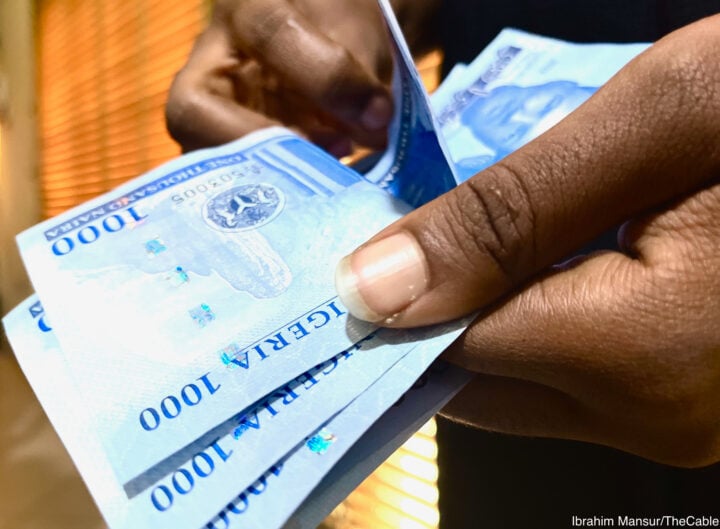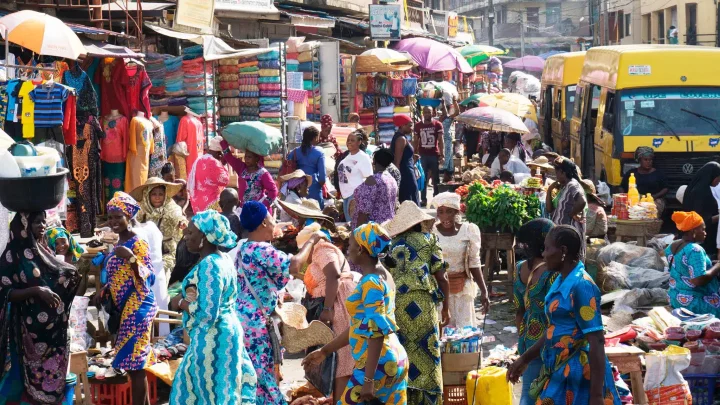BY HAFIZ BAKARE
A colleague of mine posed some questions on the Nigerian economy and I subsequently provided my thoughts (by no means exhaustive) as laid out below.
For your reading pleasure.
QUESTIONS
Advertisement
1. Why is the naira going south again?
2. Why does government seem to think forcing retail prices down a way to deal with inflation? This thinking has pervaded the society with every buyer thinking the seller is profiteering. I’ve seen cases where organised buyer groups want to force the seller’s price down riding on government’s slant. This reminds me of the Idiagbon Buhari “price control” catastrophe.
3. Is our economy not a free trade, capitalist economy?
Advertisement
RESPONSES
1. On the naira, it is definitely not yet uhuru but what is key is to eventually achieve equilibrium/stability rather than the steep fluctuations. Some of the forces that led to the artificial rise close to N2,000 a couple of months ago are still very much at play and exploring different speculative avenues to push up the rate to a point where they can at least minimize their losses and sell. The CBN, law enforcement and intelligence services still have their hands full. Ours is not a normal situation.
Unfortunately, the gains after CBN’s monetary actions (of 600 basis points overall interest rate increase and other measures along with law enforcement) in March were not matched by decisive steps on the fiscal side, most notably FX accretion into reserves from sale of crude. Oil theft should have been strongly dealt with to facilitate crude oil sales and increase FX revenue to support those CBN actions but theft is still a major issue which has continued to reduce our oil production, well below OPEC quota (after initial gains between December 2023 and January 2024). To be more specific based on OPEC data, the country’s average daily production has consistently dropped since the beginning of this year from 1.43million barrels in January to 1.32million barrels in February to 1.2million barrels in March, despite a target of 1.78million barrels. This is not the time for such!
2. Price control can only go so far if there is verifiable exploitation but it is not a sustainable way to address inflation. In our own case, the exchange rate affects almost everything with significant impact on domestic inflation. Without breathing down the necks of sellers to forcefully bring down prices, the domestic market was, in fact, gradually responding positively to the naira appreciation trend as the exchange rate moved close to N1,000 mid last month in April (SEE INITIAL MARKET REACTIONS: (a) https://nairametrics.com/2024/04/17/dangote-refinery-reduces-diesel-price-to-n1000-litre/ https://nairametrics.com/2024/04/17/dangote-refinery-reduces-diesel-price-to-n1000-litre/?amp=1 (b) https://www.legit.ng/business-economy/energy/1587998-filling-stations-reduce-petrol-pump-price-naira-secures-exchange-rate/ (c) https://www.legit.ng/business-economy/industry/1588204-traders-speak-price-bag-rice-fg-sends-warning/ (d) https://www.legit.ng/business-economy/energy/1588222-dealers-crash-cooking-gas-price-n1100-kg-stronger-naira-pushes-costs/.
Advertisement
The downward price trend would have continued if the positive exchange rate trend had been sustained or at least remained stable. Unfortunately, as the exchange rate started going up again, the gradual downward price trend of goods and services stalled because sellers were no longer sure of how they would be affected. So, it still boils down to addressing exchange rate fluctuations, continuing to preempt and frontally deal with currency speculators (driven initially by extreme opportunism and/or outright sabotage) who do not wish to accept their huge losses without a fight, and most importantly increasing FX revenue by brutally addressing oil theft. It is important to restore confidence of the people on exchange rate management with much needed stability. Once that happens, domestic inflation will gradually abate but in an environment of uncertainty and instability in the exchange rate, prices will remain the same or even go higher!
3. As desired by the government, our economy is meant to be a free trade capitalist economy which thrives on private capital with government simply providing the enabling environment. However, it became clear to this government just two months in office (as stated by the President in his 31st July 2023 speech) that such economic philosophy has to be balanced with state intervention if it becomes necessary. There is nothing wrong with that because even some of the most developed economies that preach free market have had no hesitation to apply government interventions when considered necessary.
In the last one week, Japan intervened significantly in its currency to reverse extreme depreciation of the Yen against the Dollar and it justified such intervention in a situation where the currency was moving sharply in a direction that was starting to affect companies and households.
So, in our case, the issue is not the idea of intervening to affect free trade but the manner of such intervention which can become counterproductive if not properly administered and/or even communicated.
Advertisement
Views expressed by contributors are strictly personal and not of TheCable.
Add a comment






